Best of #econtwitter - Week of February 7, 2021 [1/2]
Feb 08, 2021
Welcome readers old and new to this week’s edition of Best of Econtwitter. Thanks to those sharing suggestions, over email or on Twitter @just_economics.
Due to the high volume of papers this week, this is part one of two. Part two is here.
Paper summary threads

Ethan Mollick@emollick
The undermining of Google Books by publishers is one of the unsung digital tragedies. So much knowledge is not online, and the reason why - fear of cannibalization of book sales - was wrong. This paper shows digitalization actually increases sales by 35%! papers.ssrn.com/sol3/papers.cf…
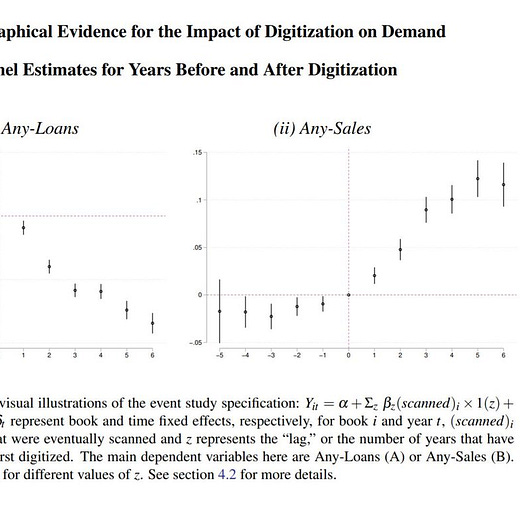
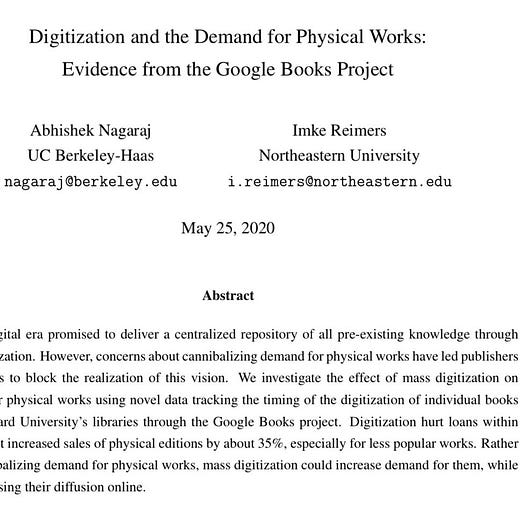
2:24 AM · Feb 7, 2021
263 Reposts · 766 Likes

Soumaya Keynes@SoumayaKeynes
Changes over time in the use of supply and demand figures in economics textbooks...
source: pubs.aeaweb.org/doi/pdfplus/10…

11:36 PM · Feb 2, 2021
9 Reposts · 42 Likes

Chris Blattman@cblatts
Here's a story of unintended consequences, of academic theories and government policy gone wrong, of how damn hard it is to tackle organized crime, and of insights into what criminal organizations really want and do.
It starts in Medellin.
[Paper: osf.io/preprints/soca…]

1:50 PM · Feb 5, 2021
471 Reposts · 1.21K Likes

Sebastian Findeisen@SebastianFind
The optimal aid schedule is very progressive and highly need-based! Remarkably the schedule is almost unchanged if we shut-off the desire for redistribution. It is also very robust to many kinds of model extensions and robustness checks.
/13

2:26 PM · Feb 1, 2021
3 Reposts · 2 Likes

Ludger Woessmann@Woessmann
For low-SES adolescents, the one-to-one mentoring increases an index of outcomes measuring labor-market prospects by 0.56 standard deviations (!) after one year.
This fully closes the initial gap in labor-market prospects to the higher-SES adolescents in our sample. (5/9)
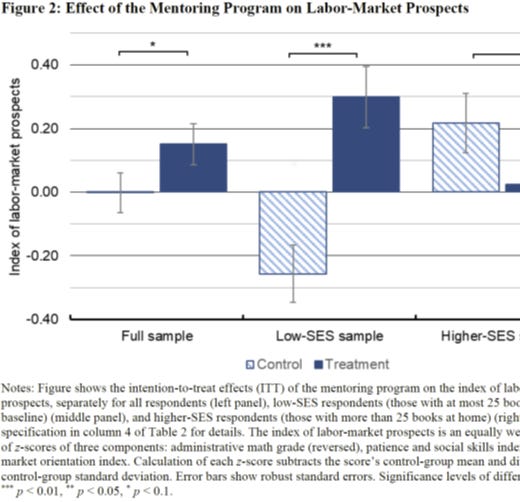
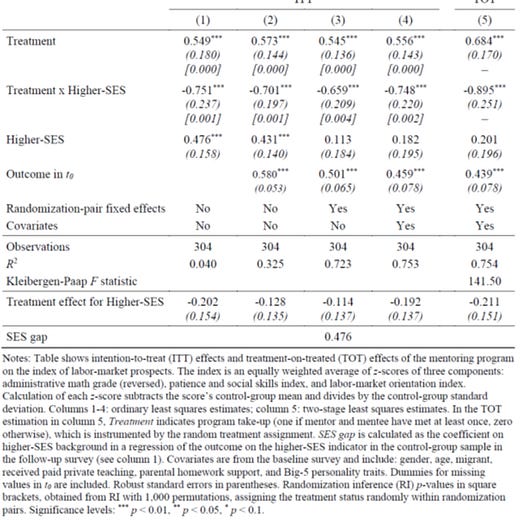
10:48 AM · Feb 3, 2021
5 Likes

Asaf Manela 🥷@AsafManela
Both Fed and SEC have institutional features that are designed to protect their independence.
But the world around them has become increasingly partisan.
In this much revised paper we measure @federalreserve and @SEC_News partisanship, 1930-2016
1/

11:11 PM · Feb 3, 2021
6 Reposts · 36 Likes

Jeffrey P. Clemens@jeffreypclemens
A thread...
on my new paper in the Journal of Economic Perspectives, which discusses a rich set of economic margins along which firms might respond to minimum wage increases.
Look below for links to many papers of potential interest:
aeaweb.org/articles?id=10…
[1/20]
aeaweb.org
How Do Firms Respond to Minimum Wage Increases? Understanding the Relevance of Non-employment Margins

5:57 PM · Feb 6, 2021
64 Reposts · 167 Likes

Patrick Gaule@patrick_gaule
We are happy to share our new paper "What Drives Innovation? Lessons from COVID-19 R&D." We examine the unprecedented scientific response to fight COVID-19 and draw implications for the economics of innovation. ftp.iza.org/dp14079.pdf
@_RuchirAgarwal
A thread 1/11

1:48 PM · Feb 3, 2021
41 Reposts · 98 Likes

Florian Ederer@florianederer
Here is my favorite JMP of the season:
economics.mit.edu/files/20679
(Yes, I'm super biased in favor of "competition + innovation" papers.)
It's (the darker) part 2 of the @RyanReedHill-@carolyn_sms structural biology trilogy. I very much hope we get a "Return of the Jedi" conclusion!
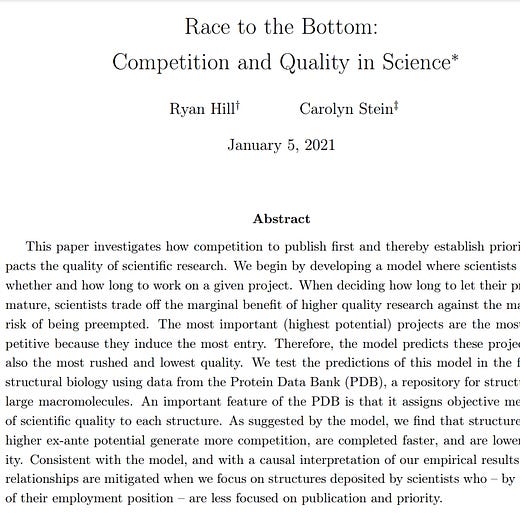
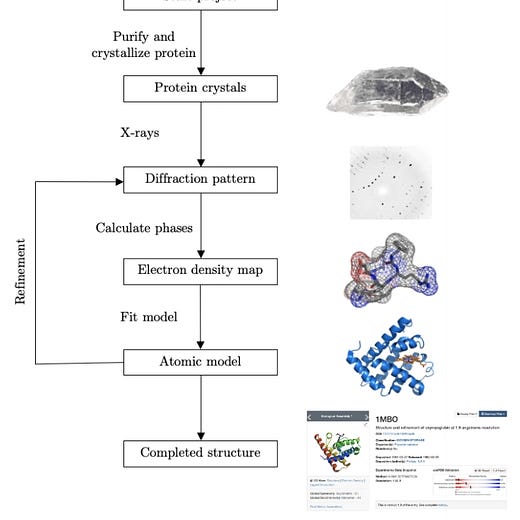
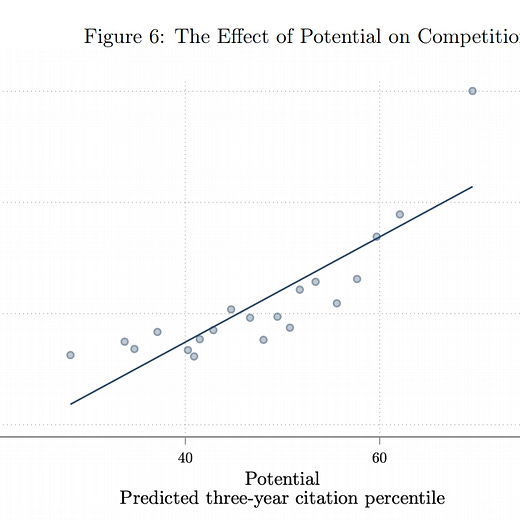
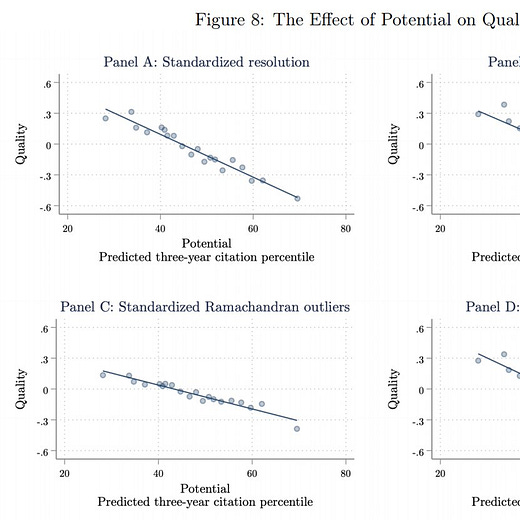
2:02 AM · Feb 4, 2021
19 Reposts · 110 Likes
Public goods

Dina D. Pomeranz@DinaPomeranz
University students from low- and middle-income countries:
This semester many courses take place online. Several professors in Europe & North America have opened their class for international students to participate remotely!
See full list & apply here: remotestudentexchange.org/courses

8:53 PM · Feb 7, 2021
287 Reposts · 555 Likes

Ariel Ortiz-Bobea@ArielOrtizBobea
Just came across this great summary of online resources for Econ grad students (and frankly for any researcher) by my colleague Shanjun Li: li.dyson.cornell.edu/phdRes.php
Covers pre-PhD, mental health, getting started w/ research, coding, writing, presenting, peer review, JM
li.dyson.cornell.edu
Shanjun Li: PhD Resources

4:12 PM · Feb 3, 2021
110 Reposts · 366 Likes

Gautam Rao@raogautam
Does any Economics PhD instructor or department post its math camp lecture notes ungated online? Thanks!
2:19 AM · Feb 6, 2021
87 Reposts · 555 Likes
Interesting discussions

Jonathan Roth@jondr44
Q for #EcontTwitter #statstwitter:
Freedman (2008a,b) showed that linear covariate adjustment in random experiments w/OLS can reduce efficiency. Win (2013) showed that an interacted version always improves efficiency.
Why do almost no econ papers use the interacted version?
7:02 PM · Feb 5, 2021
16 Reposts · 119 Likes
^lots of discussion, eg

Mohammad Akbarpour@akbarpour_
#econtwitter question: school X makes an exploding 7 day offer to candidate A. School Y, that A likes much more, is making a decision in 10 days. X knows this & doesn’t extend the deadline. What should A do?
5:48 PM · Feb 6, 2021
9 Reposts · 112 Likes

AEA Data Editor@AeaData
I wanted to illustrate the range of the various topics that a Data Editor might face, by taking a fairly random day (2021-01-29) and listing all the various (distinct) activities that are in-scope for my job at the AEA. 1/15
5:06 AM · Feb 1, 2021
29 Reposts · 166 Likes

Edward Kennedy@edwardhkennedy
A short thread:
It amazes me how many crucial ideas underlying now-popular semiparametrics (aka doubly robust parameter/functional estimation / TMLE / double/debiased/orthogonal ML etc etc) were first proposed many decades ago.
I think this is widely under-appreciated!
10:32 PM · Feb 1, 2021
35 Reposts · 184 Likes

Jason Abaluck@Jabaluck
I think of research design (informally) as being fundamentally about whether you have a story for where your identifying variation comes from--contrasted with the case where your identifying variation is basically an unknown residual.

Paul Goldsmith-Pinkham @paulgp
@VC31415 That what was so interesting!! I couldn't find one. The Angrist Pischke JEP symposium uses the term 69 times with no definition 😔
I tried to give a definition, but honestly this could use more work: https://t.co/AJdpeAkuMe
10:23 PM · Feb 4, 2021
10 Reposts · 54 Likes

Shengwu Li@ShengwuLi
I wonder how much of economics can be summarized by a strong prior that:
1. Optimization matters
2. Equilibrium matters
3. Optimization problems are mostly convex and have interior solutions. https://t.co/jk88PccuXK

Sam Dumitriu @Sam_Dumitriu
Alex Tabarrok was ahead of the curve on first doses first.
Now he's highlighting Moncef Slaoui's half doses for under 55s proposal.
Well worth considering.
https://t.co/Qa8UI3yvxj
11:33 PM · Feb 5, 2021
8 Reposts · 88 Likes

